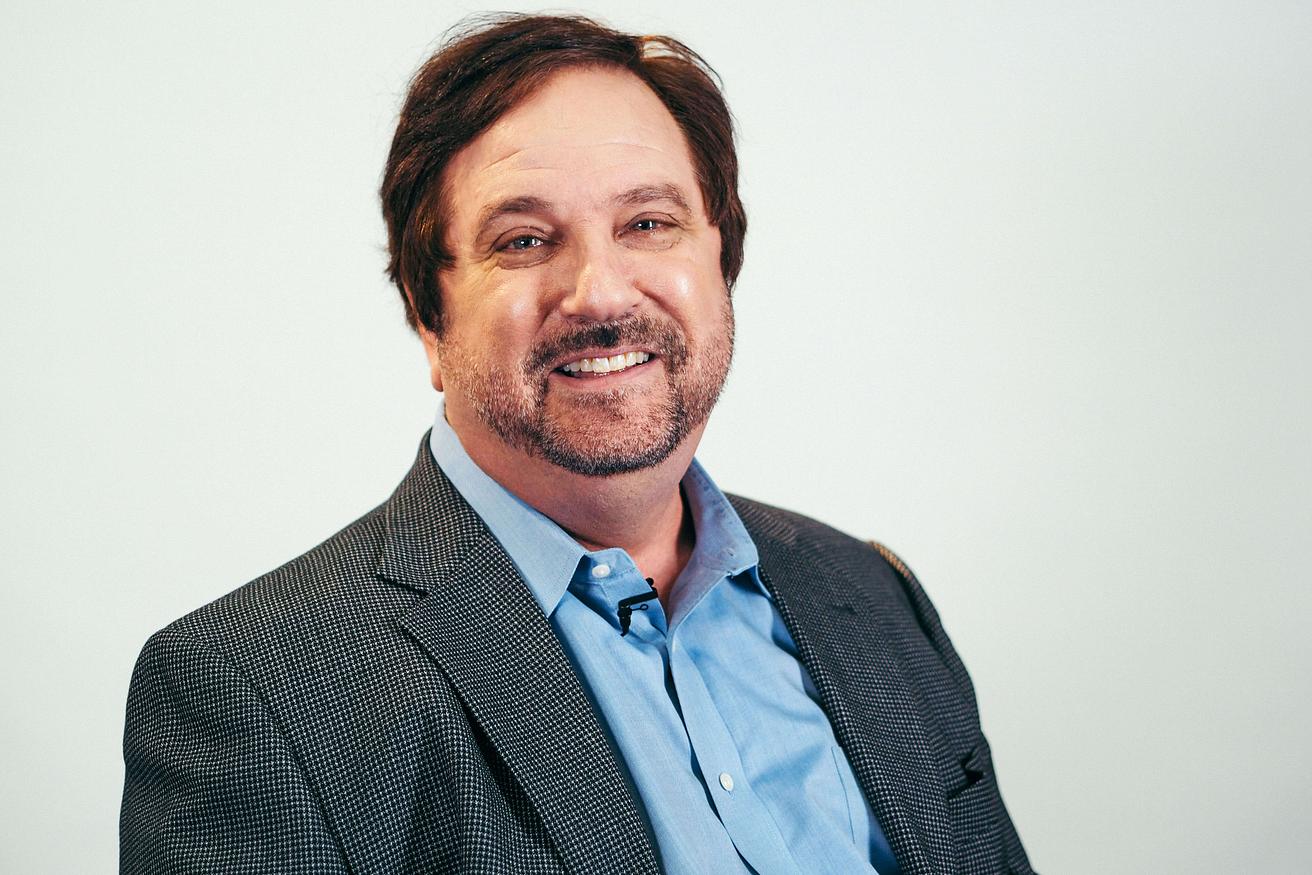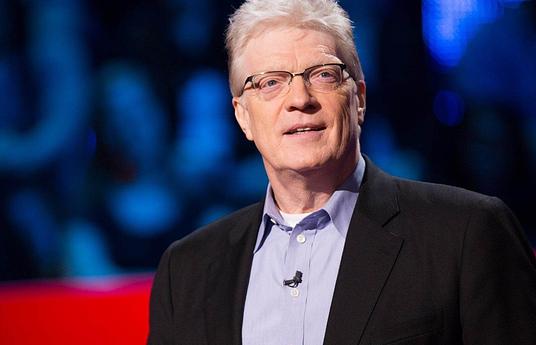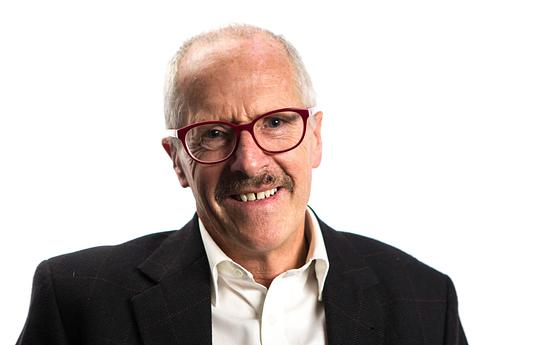Rafe Esquith
Rafe Esquith is an awarded American teacher and founder of The Hobart Shakespeareans, which teaches children in areas of high deprivation in Los Angeles complete Shakespeare plays. Through this method the children excel in their more traditional studies year after year.
Skills
Are schools teaching the skills students need?
No, I don’t think we’re preparing children for the future. A classic statistic is that even if you take our best students in the United States, more than half of the students who get to college don’t finish it. So clearly we’re not preparing them. That’s not my opinion, you just have to look at the statistics.
The biggest problem is that we’re not preparing them to read. We could go on for hours with what we’re doing wrong with reading, but if I can explain that a little bit - my students love to read and the greatest problem we’re facing is we are not being honest. Schools are not being honest with the parents. They’re not even being honest with themselves. For example, middle school and high school students today, even if they are given literature, don’t read it in class – they go home and look up the Sparknotes online so that they can pass a test.
The problem with reading is this: if you take any other subject, let’s say a child is learning to play the violin, once they can play the notes, we don’t just shove them aside and say: ‘Go play for the next ten years.’ They constantly work with the teacher on fingering, timing, posture, emotion – they always work with someone. But reading is the only subject that once we teach children to do it, we say: ‘Go read! Go do silent reading.’ Where is the coaching?
As a result we have a whole generation of children who even though they can read words, do not comprehend what they’re reading, do not understand important concepts that great writers are trying to teach them. They need to read with an expert.
The reason my students are successful and why they can read Shakespeare is because we read together. They don’t go home and finish the chapter at home, they can’t do that yet – they’re just young students – so we read every word of every page together. That is why my ten-year-olds understand Hamlet or Ipsen or anyone, because they work with an expert. Children reading alone who are not reading at all, is a big problem.
What are the skills we need to be teaching our children?
We want children to love to read and we want them to have fun. Reading should be about laughter and tears and arguing about meanings and being shocked. I’ve just been reading Great Expectations with my students and when the kids figured out Miss Havisham is not the benefactor and that it’s Magwitch, they audibly gasped in the classroom. How do you measure that gasp with a standardized test, or the looks on their faces, or their eyes opening wide, or watching them relate Pip’s expectations to their own expectations in their lives?
That is what reading is supposed to be. There are so many skills they’re getting from reading with an expert. They’re learning enormous amounts of language, they become better listeners, better speakers, better writers, better communicators. In our world that is becoming so superficial, where we always seem to be aiming for the lowest common denominator, by reading great works of literature with a teacher we raise the bar. It’s as simple as that.
Teachers
What is the role of the teacher?
The role of the teacher should be to open doors for students that were previously closed. The author John Steinbeck used to write about what the American dream is and where we’re really at and the gap between the two. As someone who works with children in a very poor environment, my job is to open doors and close the gap. There is no way a child growing up in poverty has the same opportunity as a child who has two wealthy parents who went to Stanford – it’s not equal, and America is supposed to be the land of equal opportunity.
The role I have as a teacher is to level the playing field. I don’t begrudge the children who are born with good fortune, that’s great! But I want my students to have the same opportunity and by understanding language well, it levels the playing field. The fact they are fabulous readers is the real reason my students get to the top schools. There are many reasons for this of course but that is the key reason. They read all the time. For them reading is not a subject, it’s something we do.
One more thing about the way I teach reading, I don’t give homework, we don’t have projects. When we read To Kill a Mockingbird you don’t have to go home and make a diorama of Boo Radley’s house or do fifty pages of worksheets which bores the kids to death. That has nothing to do with reading. Our reading is just reading, hours and hours and hours of it, and have a lot of fun.
The role of a teacher is to make learning fun and to show the children the relevance of the reading to their own life. A great book is not about the characters in the book, it’s about you. When Huck Finn goes down the river, it’s not Huck’s trip down the river, it’s your trip down the river and the decisions you will make and the moral decisions you will have to make in figuring out who you are. That’s the teacher’s role – connecting the work and making it relevant to the children’s lives.
Assessment
Do you think standardized testing is an effective way to assess learning?
I have no problem assessing students. Certainly, if I teach children to multiply I give them a test on multiplication, but I also explain to the children why we’re having an assessment. I simply need to know if they understand the material. If they do badly I’ll ask them: ‘What’s going to happen? You’re not going to burn in hell. It just means I have to teach you again, because you don’t understand.’
Because of this idea of your score defining you as a human being, we’ve gotten way out of line with what’s important. Schools now flash their test scores at the front of the school. I would suggest to you that the most important things I teach children cannot be measured on a standardized test. How do you measure honesty or decency or integrity, which to me are the most important things to teach children. I also tell my children my wife did not fall in love with me because of my test scores. She didn’t even ask me about my test scores.
So, do I believe in assessment? Of course, as a small part of a much larger picture.
Environments
What would be the best learning environment?
There has to be a lot of laughter. Most classrooms are based on fear, and when I talk to the children about this - boy, do they have a lot to say!
Do you know that in some schools of education they actually instruct young teachers to scare the children? They have expressions like ‘Don’t smile until Christmas. Show them who’s boss.’
As I always say, I’m six feet tall, I can make a ten-year-old do what I want them to do, I can scare the bejesus out of them! I can call your parents, I can put your name on the board, you are going to sit on the bench – but that’s not teaching. That’s bullying.
I think the most important emotion in the classroom is trust. I tell my students: ‘You are going to make a million mistakes in this room. You are going to spill the paint, break the guitar string, forget your work - it’s fixable.’ But a broken trust, you can’t fix it. It will always be remembered, even if we forgive each other.
So I think the best classrooms are based on trust. My students trust me and I trust them. It’s amazing, even something as simple as a child asking permission to go to the bathroom, when I say: ‘Why are you asking me? You’re ten years old, clearly you know when you have to go.’ But they’ve been trained to ask permission to get water and go to the bathroom. Why? Because their teachers don’t trust them. They think they are going to do something different. When I give students trust, they are so grateful that they don’t break it. They’re honored to have it.
What are your views on technology in education?
I think technology is great. For instance, my students are also well known because I love to teach them music, many of my students after being in my class for two years play ten instruments and play them well. We use technology for our music lessons so that when one of the students has a flute part to practise or a violin part to practise at home, we create websites where they’re playing along with the exact piece or even playing along with other students to practise their harmony and timing.
So in that way technology is fantastic, because it connects children with proper ways to do things and they’re not left alone making mistakes that are then not corrected.
The problem with technology is you can get so much information, which unfortunately is mostly incorrect or wrong. I’m sceptical about finding information, but using it as a tool to continually have the students communicate with one another and work together - I think is fantastic.
Leadership
How can global change be affected?
I think you’re going to have to find some rebellious teachers. You’re going to have to find teachers who are willing to be ostracized and crucified as I have been for doing things differently for the sake of the students. You are going to have to find teachers who are willing to spend enormous amounts of time.
We talk about our global changes. One of the problems is, as we speed up, everybody’s looking for the magic and the instant solution – instant coffee, instant shopping, instant movies. I’ve never found instant education or instant scholarship. I think to be good at anything takes thousands of hours of disciplined practise. My job as a teacher is to show the children a huge menu of things you can do with your life; maybe you want to be a gardener or a mechanic or a mathematician or an architect.
Once you find out what it is you want to do, then work really hard to achieve that. I set an example by working really hard as a teacher. For instance my students and I will sit together for about fifty hours reading through Great Expectations and when people watch me they say: ‘Wow, this takes a long time,’ and I say: ‘Yes, it does.’ When we perform a Shakespeare play, and you’re going to think I’m kidding but I can actually document this, we spend cumulatively together as a group sixty thousand hours of rehearsal before we perform after a year. Of course they are good, because they have so much fun rehearsing together, the rehearsals are much more fun than the play, but all those hours of practise is why they’re really good.
So when people say: ‘Do you raise kids that are super geniuses?’ No! They’re just kids, but they are committed to what they do and they work really hard at it. To make a global change, we need to have a conversation where teachers understand that this is very hard work and if you want your students to understand Hamlet, you’re going to have to read it with them. You can’t just send them home to read it.
Now in schools they have these state books with abridged versions. They have Anne Frank four pages long. It’s four pages of the book. Fourth graders read it and what do they do? They go home and tell their parents: ‘I’ve read Anne Frank!’ The school documents, ‘We have Anne Frank at our school,’ and everybody goes, ‘Oh that’s very nice.’ But they don’t have Anne Frank at the school! They haven’t read Anne Frank. And I feel like the guy shouting out, ‘The Emperor has no clothes!’
So I don’t mean to be gloomy about this, but I think the most important thing we need is honesty. The honest thing the grown-up has to think about is, if we’re going to do this, we have to put in the time.
Personal memory
Did you have a favourite teacher?
Yes. I had a great history teacher in the eleventh grade. All the other kids hated him, but he wasn’t mean, he was just tough. What I loved about him was that he was socratic. For instance if you liked President Lincoln and you would say you did, he would come at you with fifty reasons to hate him. But if you said you don’t like President Lincoln, he would come at you with fifty reasons why you had to love him. He made me think that you can’t just say something, you have to have reasons and that was very powerful.
Today in my classroom, when children are doing a project they tend to say: ‘I’m done.’ and I always ask the kids: ‘When are we done?’ and they have to answer: ‘Never!’ When you finish a book, there’s the next book. When you finish a math project, you’re never done learning math. You’re never done learning geography. So the other thing I learned from him was that we’re focused on the end result, but I think the journey is far more important than the destination. And as a teacher of thirty-two years, I’m just getting warmed up! This is just part of a long journey and I’m better now than thirty years ago and I’m going to be better in thirty years, because I keep learning.
The next 100 years
The next 100 years of Finnish education should… include a love of reading and every child learning how to play musical instruments.
When children learn music they are learning about things that have nothing to do with music. They’re learning about concentration, hearing others and correcting mistakes. In an era when people say: ‘Kids don’t pay attention anymore,’ or ‘Let’s give them a pill to make them pay attention,’ music is the great focuser. That will save the world.


